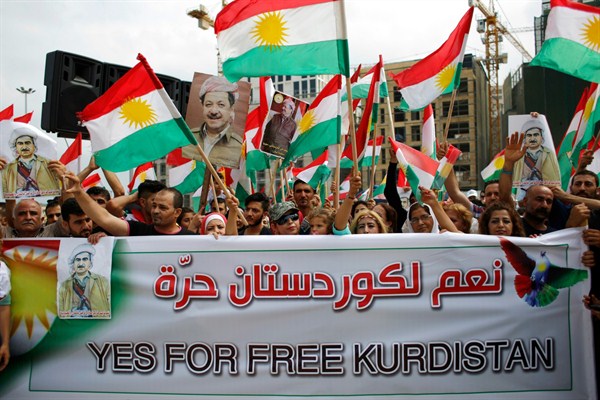Iraq’s Kurds are slated to vote on a referendum for independence on Sept. 25, despite fervent opposition from outside parties, including Iraq’s central government. With tensions building, the referendum has become a lightning rod among the coalition of forces united to eliminate the self-proclaimed Islamic State, whose stronghold straddles Iraq and Syria. In an email interview, Ramzy Mardini, a nonresident fellow at the Rafik Hariri Center for the Middle East at the Atlantic Council, discusses how the referendum might affect the international campaign against the Islamic State, the post-conflict state of affairs in Iraq and relations between the Kurds and regional and international powers.
WPR: What impact is the upcoming Kurdish referendum likely to have on the closing phase of the campaign against the Islamic State in Iraq?
Ramzy Mardini: The Kurdish referendum could undermine military cooperation between the Kurdistan Regional Government in Irbil and the central government in Baghdad, especially if violence erupts between their forces within the disputed territories of northern Iraq that the Kurds consider part of their own region but Baghdad insists are Iraqi territory. However, this does not mean that the Islamic State is set to make a comeback. There are far more constraints working against the militant organization to expand and reconsolidate in today’s security environment than there were back in 2014. The networks that underpinned the group’s command-and-control have been devastated in Iraq. Moreover, the same structural opportunities in 2014—such as the collapse of Iraq’s security apparatus across five provinces—are not on the verge of repeating themselves in 2017.

